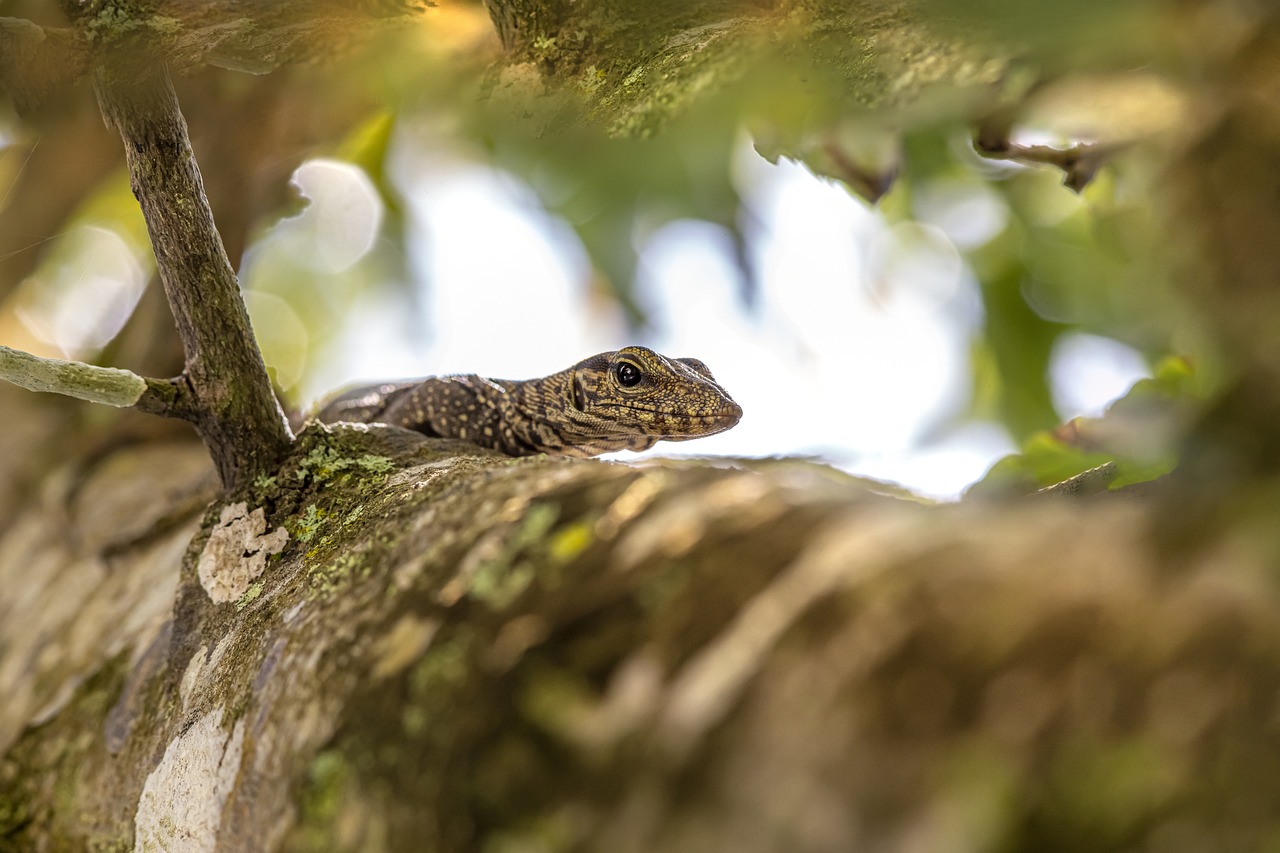Asian Water Monitor (Varanus salvator)
The Asian Water Monitor is one of the largest and most adaptable lizards in the world. Found across South and Southeast Asia, it thrives in wetland habitats, forests, and even urban areas.
Physical Characteristics
- Size:
- Typically 1.5–2 meters (5–7 feet) long, but can grow up to 3 meters (10 feet).
- Weighs between 15–25 kg (33–55 lbs), with some exceeding 50 kg (110 lbs).
- Appearance:
- Dark brown or black body with yellow spots or bands.
- Long, muscular tail (used for swimming and defense).
- Forked tongue like a snake, used for detecting scents.
- Limbs & Claws:
- Strong legs with sharp claws for climbing, digging, and catching prey.
Habitat & Distribution
- Found in India, Sri Lanka, Bangladesh, Myanmar, Thailand, Malaysia, Indonesia, Cambodia, Vietnam, and the Philippines.
- Prefers wetlands, rivers, lakes, mangroves, and coastal areas.
- Can adapt to urban environments, often seen near canals and drains.
Diet & Hunting
- Opportunistic carnivore and scavenger – eats almost anything!
- Main diet includes:
- Fish, frogs, crabs, snakes, birds, eggs, rodents, and carrion.
- Will also raid garbage and scavenge human food waste.
- Uses strong jaws and claws to kill prey, often swallowing it whole.
Behavior & Adaptations
- Excellent swimmer – can stay underwater for up to 30 minutes.
- Fast and agile on land, reaching speeds of over 20 km/h (12 mph).
- Climbs trees to escape predators or hunt birds.
- Uses tail as a weapon, whipping it when threatened.
Reproduction & Lifecycle
- Mates during the rainy season.
- Females lay 20–40 eggs in burrows or rotting logs.
- Hatchlings are independent and must avoid predators like larger monitors and birds.
Conservation Status & Threats
- Status: Least Concern (IUCN) but faces threats from:
- Habitat destruction (urbanization, deforestation).
- Hunting for meat, skin (leather), and traditional medicine.
- Persecution due to fear and mistaken identity as dangerous.
Protection Measures
- Wildlife conservation laws protect them in many countries.
- Educating communities to prevent unnecessary killings.
Interesting Facts
- One of the largest lizards in the world, second only to the Komodo dragon.
- Uses its forked tongue to “smell” prey like a snake.
- Plays an important role in ecosystems as a scavenger, cleaning up dead animals.
- Can climb walls and trees using its sharp claws.
Summary
The Asian Water Monitor (Varanus salvator) is a large, powerful, and highly adaptable lizard found across South and Southeast Asia. It is an excellent swimmer and climber, feeding on a variety of prey, including fish, birds, and carrion. While not endangered, habitat destruction and hunting pose threats to its population.
Visited 323 times, 6 visit(s) today
Views: 738
Subscribe to the newsletter:
